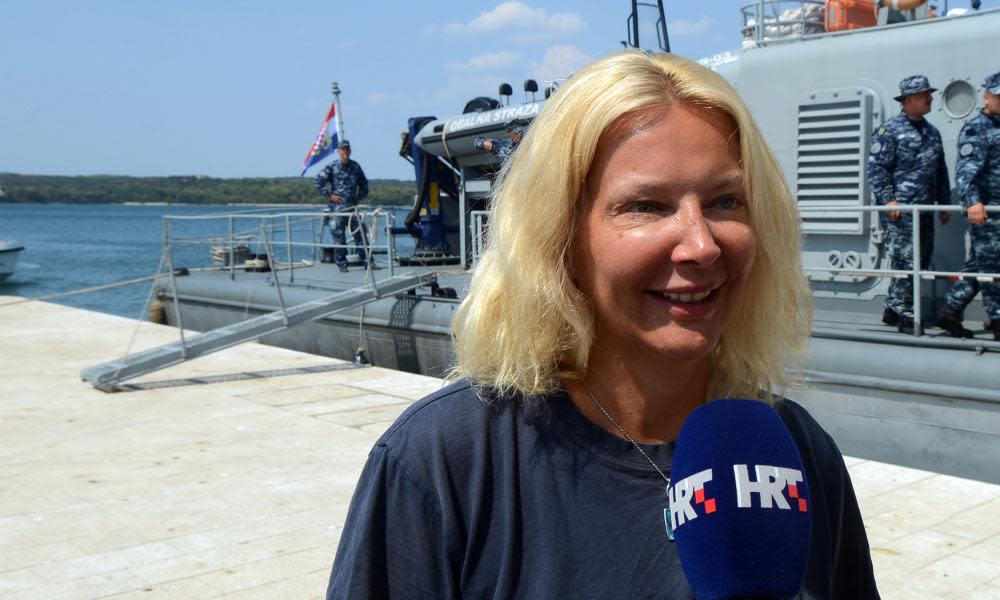Kay Longstaff was lucky. Most people who fall off ships are never seen again

Even when life is a cruise, we are just a guard rail away from a rude awakening. For British passenger Kay Longstaff, the fall from the back of the Norwegian Star cruise ship has had an unexpectedly happy ending: rescued after 10 hours’ floating in the comparatively warm and balmy Adriatic sea. The circumstances of her initial plunge have yet to be established, and while theories have ascribed her survival to yoga and levels of subcutaneous body fat, most who go over the edge are not so lucky as to be plucked from the sea by the Croatian coastguard.
The annals of those who have disappeared overboard – most thoroughly documented by the excellent Cruise Junkie database – show a rate of at least one recorded fall per month from cruise ships over recent decades. The incidence of mortality from the natural passing of an often older clientele is far higher – every stately ship, many carrying thousands of passengers, has a morgue. And the intermittent outbreaks of norovirus, liable to sweep through a cruise ship like wildfire in a heatwave if unchecked, will pose a greater danger for many.
But going over the edge captures the imagination: if vertigo, as some psychologists have posited, conceals a desire to jump, how many more feel it when the blue sea is below? And particularly, when that might be the more alluring waters visited by cruise ships, rather than a cross-Channel ferry. Of the cases where witnesses have been present, at least one reported (Australian) fatality was the result of someone deciding the waters looked inviting, after a drink too many.
Should the impact of striking the water from the equivalent of a 10-storey building or more not prove fatal, the survivor may quickly find themselves alone: in the time it takes to relay a message and turn a moving ship around a considerable distance can grow. Technology has helped – CCTV footage has allowed ships to accurately calculate when and where a fall occurred, as happened in Longstaff’s case. But stories of miracle rescues, where shock, hypothermia, choppy waters or sharks are held at bay, will not necessarily be welcomed by cruise lines, for whom a search and disrupted schedules could spell significant financial costs.
Mostly, though, motive, circumstance and truth are lost in the waves. Some have undoubtedly chosen to end their lives in this way. Some were simple accidents, with drink often playing a part, as the clientele and entertainment on offer aboard modern cruise ships have charted a somewhat different course from QE2 tradition. In some cases, foul play has been suspected – and relatives of the deceased have often been met with an unbearable lack of information from the cruise lines when a passenger has gone missing. Or indeed, cruise ship workers: often employed on a pittance and working long hours, hired from countries far away, from families with little hope of pressing their cases. Yet the relatives of affluent passengers or western employees have been equally frustrated in finding answers after disappearances.
Technology, communications and safety have all improved on ships that have the scale of small towns, complete with shopping malls, restaurants and theatres – but falls overboard vividly demonstrate their limits. Despite recent laws passed in the US that offer greater legal and police protection to their cruising citizens, for many onboard the ultimate authority – and investigators should one disappear in international waters – resides in the ship’s flag state: likely the Bahamas or Panama, or any other with accommodating tax and regulatory compliance regimes. Longstaff’s welcome rescue was a small miracle, but should best serve as a stark reminder for those who cruise: ultimately, all are at sea.
• Gwyn Topham is the author of Overboard - The Stories Cruise Lines Don’t Want Told and the Guardian and Observer’s transport correspondent

 Yahoo News
Yahoo News 
